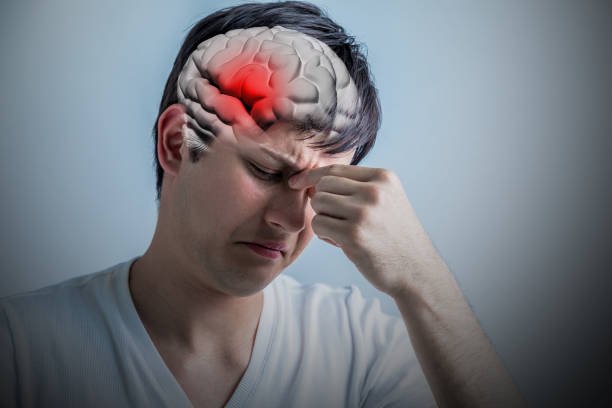
Cholesterol too High? Pay Attention to the 6 Major Symptoms of Hyperlipidemia! Causes and Treatments at Once
Modern people are eating refined foods more and more frequently, but eating and drinking too much is likely to cause rapid fluctuations in blood lipids, leading to hyperlipidemia.
Since hyperlipidemia does not cause obvious symptoms, many people not only think that hyperlipidemia is not a disease, but also ignore it. However, if not treated early, hyperlipidemia may be complicated by coronary heart disease or even stroke.
What are the criteria for hyperlipidemia? What are the symptoms of hyperlipidemia? What treatments should be received to improve hyperlipidemia? This article will answer your questions one by one and help you stay away from the crisis of elevated blood lipids.
What is hyperlipidemia?
Hyperlipidemia refers to an increase in cholesterol and triglycerides in the blood, resulting in an abnormal increase in blood lipids. Hyperlipidemia can be mainly divided into three categories: hypercholesterolemia, hypertriglyceridemia and mixed hyperlipidemia.
Three major categories of hyperlipidemia: look at the difference in blood lipid concentration like this
The following are the three common types of hyperlipidemia and their blood lipid concentration values:
- Hypercholesterolemia: Cholesterol is 200 mg/dl higher than the normal value.
- Hypertriglyceridemia: Triglyceride value is higher than 200mg/dl.
- Mixed hyperlipidemia: Cholesterol and triglyceride values are both higher than 200mg/dl.
Common symptoms of hyperlipidemia: chest pain, crooked mouth, don’t ignore them

Generally speaking, people with mild hyperlipidemia may only experience symptoms such as dizziness, fatigue, insomnia, forgetfulness, chest tightness, palpitations, etc., and will not experience obvious symptoms of discomfort. Since the symptoms are similar to those of many diseases, Therefore, it is easy to be ignored by patients.
However, when hyperlipidemia is more severe, it will cause symptoms such as headache, chest tightness, chest pain, shortness of breath, physical weakness, and crooked corners of the mouth. If not treated in time, it may eventually lead to coronary heart disease, stroke, and other diseases.
In addition, hyperlipidemia may also be complicated by the following 8 diseases:
- Arteriosclerosis
- Aneurysm
- Myocardial infarction
- Angina pectoris
- Heart failure
- Stroke
- Acute pancreatitis
- Necrosis of peripheral limbs
2 causes of hyperlipidemia
Hyperlipidemia can be divided into primary hyperlipidemia and secondary hyperlipidemia according to the causes. The causes are introduced below:
- Primary hyperlipidemia:
Even without bad living habits, primary hyperlipidemia may be caused by genetic inheritance. - Secondary hyperlipidemia:
mainly caused by acquired factors, such as type 2 diabetes, cholestatic liver disease, chronic kidney disease, hypothyroidism, nephrotic syndrome, smoking, obesity, and taking oral contraceptives, Thiazide Certain medications such as diuretics.
There are two common treatments for hyperlipidemia: non-pharmacological treatment as the main treatment and drug treatment as the supplement
Since hyperlipidemia is often difficult to detect, patients are often informed that they have hyperlipidemia only after receiving a health check-up and discovering that their cholesterol or triglyceride index exceeds the standard. At this time, most doctors will recommend that patients first focus on non-drug treatments; such as changing daily habits to control blood lipids. However, if blood lipids are not significantly controlled after a period of time, drug treatment will be necessary. As for the differences between non-drug treatment and drug treatment, the following items will explain to you:
Non-drug treatment 1. Diet control
It is recommended that patients with hyperlipidemia change their diet to cooking methods such as steaming, boiling, and cold salad, and reduce the intake of foods containing saturated fat, such as fatty meats, butter, offal, fried foods, etc., to prevent cholesterol from rising. If you want to consume dairy products, it is recommended to mainly consume zero-fat or low-fat products to effectively control blood lipids.
In addition, patients may wish to eat moderate amounts of deep-sea fish rich in Omega-3 fatty acids, and change their staple meals to whole grains and roots such as oats and brown rice instead of part of the white rice or noodles, and reduce the consumption of sweets or sugary drinks to prevent the occurrence of three diseases. Glyceryl acid levels increase, thereby reducing the risk of arteriosclerosis or stroke.
Non-drug treatment 2. Regular exercise
Regardless of the type of hyperlipidemia, it is recommended that patients with hyperlipidemia should engage in at least 150 minutes of aerobic exercise every week; such as jogging, swimming, cycling, aerobic dancing, etc., which can help control weight and reduce cholesterol and triglycerides in the body. concentration.

Medical treatement
If patients with hyperlipidemia still cannot effectively control their blood lipids after adjusting their lifestyle habits for 3 to 6 months, they must consider drug treatment. Currently, there are three main types of drugs commonly used to treat hyperlipidemia:
- Statin drugs:
can effectively reduce low-density lipoprotein cholesterol (LDL-C) after taking them, but may cause side effects such as increased liver function and muscle disease. - Bile acid-binding resin:
It is a very common cholesterol-lowering drug that can inhibit cholesterol absorption. However, patients may experience side effects such as gastrointestinal discomfort and constipation after taking it. - Fiber hydrochloric acid derivatives, nicotinic acid and fish oil:
These three types of drugs can all reduce the concentration of triglycerides in patients with hyperlipidemia, but they are prone to symptoms such as gastrointestinal discomfort and increased liver function after taking them.












